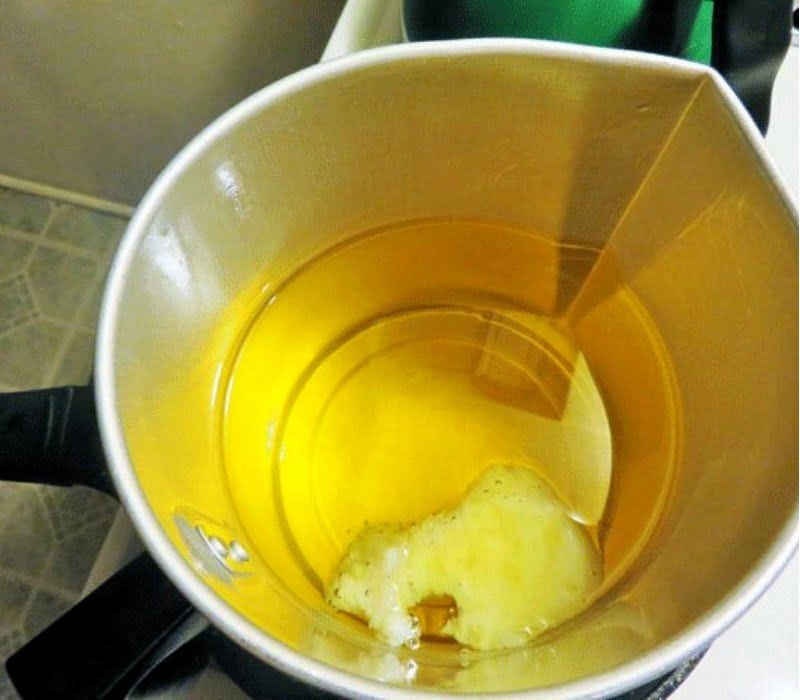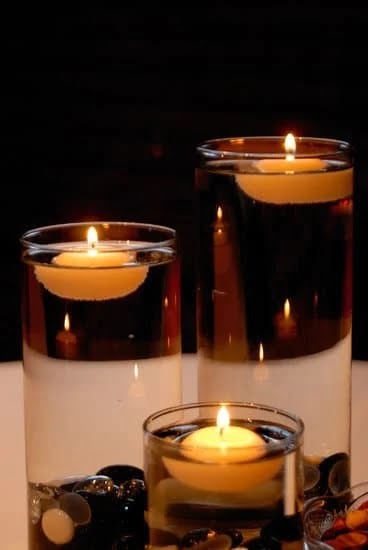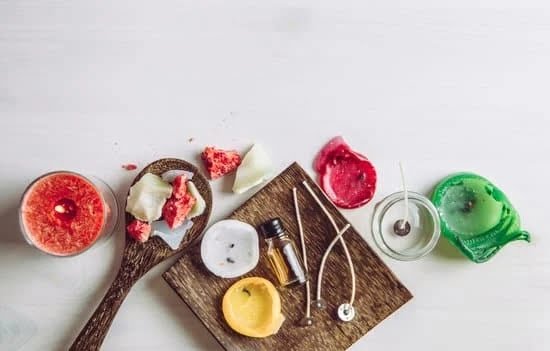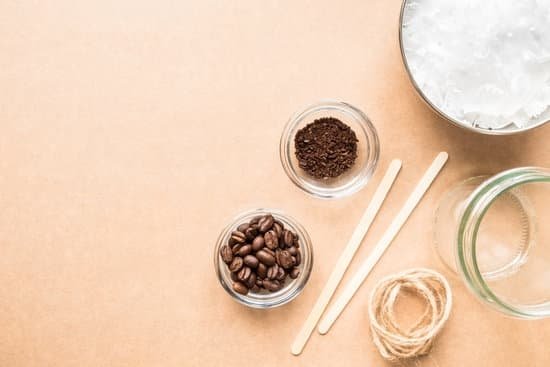Are you wondering what are the best essential oils for candle making? The use of essential oils in candle making has become increasingly popular due to their natural properties and aromatic benefits. From creating a relaxing atmosphere to enhancing emotional well-being, essential oils offer a versatile and customizable way to elevate your candle-making experience.
As the demand for natural and eco-friendly products continues to grow, so does the interest in using essential oils in various DIY projects, including candle making. The appeal of essential oils lies in their ability to impart unique scents and potential therapeutic effects when used in candles. Whether you’re a seasoned candle maker or just starting out, understanding the best essential oils for candle making is key to crafting high-quality, personalized products.
In this article, we will explore the world of essential oils and how they can enhance your candle-making journey. From understanding the different types of essential oils available to factors to consider when choosing them, we’ll delve into the numerous possibilities that come with incorporating these natural plant extracts into your candles.
Additionally, we’ll highlight specific essential oils known for relaxation, stress relief, aromatherapy, and seasonal use, as well as provide practical tips on how to use them effectively in your candle-making endeavors. Let’s embark on this aromatic exploration together.
Understanding Different Types of Essential Oils
When it comes to candle making, essential oils are becoming increasingly popular due to their natural aromas and therapeutic properties. Understanding the different types of essential oils available for candle making is crucial in creating unique and appealing scents for your homemade candles.
There are various types of essential oils that can be used in candle making, each with its own distinct properties and aromas. Some popular options include lavender, peppermint, eucalyptus, lemon, and rosemary essential oils. Lavender offers a floral and calming scent, while peppermint provides a refreshing and invigorating aroma. Eucalyptus has a fresh and clean smell, lemon emits a bright and citrusy fragrance, and rosemary offers an herbal and earthy aroma.
When choosing essential oils for candle making, it’s important to consider factors such as scent strength, compatibility with wax, and price. Some essential oils are stronger than others in terms of fragrance intensity, so it’s important to use them sparingly to avoid overpowering the candle’s scent.
Additionally, not all essential oils work well with certain types of wax, so it’s essential to research which oils are best suited for the specific type of wax you plan to use in your candles. Lastly, some essential oils may be more expensive than others due to their rarity or extraction process, so consider your budget when selecting which oils to incorporate into your candle making.
Factors to Consider When Choosing Essential Oils for Candle Making
When it comes to choosing essential oils for candle making, there are several factors to consider to ensure that you achieve the desired results. One of the most important factors to consider is the scent strength of the essential oil.
Some essential oils have a strong, potent aroma, while others have a more subtle scent. It’s important to consider how strong you want the fragrance of your candle to be and choose an essential oil that aligns with your preference.
Another crucial factor to consider is the compatibility of the essential oil with the wax you are using for candle making. Different types of waxes may work better with certain essential oils, so it’s important to do your research and choose oils that will blend well with your chosen wax. For example, soy wax may work better with some essential oils than paraffin wax, so it’s important to take this into account when selecting your essential oils.
Price is also a consideration when choosing essential oils for candle making. Some essential oils can be quite expensive, especially those that are rare or in high demand. It’s important to consider your budget and choose essential oils that not only fit within your price range but also provide good quality and value for your money.
Top Essential Oils for Relaxation and Stress Relief
When it comes to creating candles for relaxation and stress relief, choosing the right essential oils is crucial. There are several essential oils known for their calming and soothing properties, making them perfect for creating a tranquil atmosphere.
Lavender essential oil is often considered one of the best options for relaxation, as its floral aroma is widely associated with reducing stress and promoting a sense of calm. Another popular choice is bergamot essential oil, which has a citrusy scent known for its mood-lifting and stress-reducing effects.
One of the most beloved essential oils for relaxation is chamomile oil. It’s often used in aromatherapy to promote a peaceful environment and help with sleep. Frankincense essential oil is also highly regarded for its ability to induce feelings of relaxation and improve overall well-being. These are just a few examples of the best essential oils for candle making when your goal is to create a calming and stress-relieving ambiance.
Incorporating these essential oils into your candles can have a significant impact on the overall atmosphere of any space. Whether you’re looking to unwind after a long day or simply want to create a serene environment, these essential oils are wonderful options for achieving a sense of relaxation and tranquility.
| Essential Oil | Main Properties |
|---|---|
| Lavender | Reduces stress, promotes calmness |
| Bergamot | Lifts mood, reduces anxiety |
| Chamomile | Promotes peace, aids in sleep |
| Frankincense | Induces relaxation, improves well-being |
Best Essential Oils for Aromatherapy Candles
When it comes to creating aromatherapy candles, choosing the right essential oils is crucial to achieve the desired therapeutic benefits. Whether you’re looking to create a calming atmosphere for relaxation or seeking to uplift your mood and promote mental clarity, there are several essential oils that are well-known for their aromatherapy properties. Here are some of the best essential oils for aromatherapy candles:
- Lavender: Known for its soothing and calming effects, lavender essential oil is often used to promote relaxation and improve sleep quality. Its gentle floral scent makes it a popular choice for creating candles that help reduce stress and anxiety.
- Frankincense: With its warm, woody aroma, frankincense essential oil is widely used in aromatherapy for its ability to promote feelings of peace and relaxation. It can also help alleviate symptoms of anxiety and depression when used in candles.
- Bergamot: The citrusy and uplifting aroma of bergamot essential oil makes it an excellent choice for creating candles that can elevate mood and reduce feelings of stress. It is known for its ability to provide a sense of calm and well-being.
These essential oils can be used individually or combined to create custom-scented candles that cater to specific emotional needs. When making aromatherapy candles, it’s important to consider the properties of each essential oil and how they can work together to provide a holistic sensory experience. Additionally, using high-quality, pure essential oils will ensure that the therapeutic benefits are effectively conveyed through the candles.
Aromatherapy candles scented with these essential oils can be used during meditation, yoga practice, or simply as a part of your daily self-care routine. The power of aromatherapy lies in the ability of these natural scents to positively impact our emotions and overall well-being. By incorporating these best essential oils into your candle making process, you can enhance not only the ambiance of your space but also create a more nurturing environment for yourself and others.
Essential Oils That Complement Each Other
When it comes to creating unique and harmonious scents in candles, combining different essential oils can produce delightful results. Many candle makers enjoy the creative process of blending complementary essential oils to achieve a balanced and appealing aroma. Understanding which essential oils work well together is key to crafting captivating and distinct scents for your candles.
One popular combination is lavender and vanilla essential oils. Lavender is known for its calming and soothing properties, while vanilla adds a warm and sweet note to the overall scent. This blend is perfect for creating a relaxing atmosphere in any room. Another winning combination is citrus and mint essential oils, which can create an invigorating and refreshing scent that’s ideal for use in bathrooms or kitchens.
Additionally, floral essential oils such as rose or jasmine can be beautifully complemented by woodsy scents like cedarwood or sandalwood. The floral notes add a touch of elegance, while the woodsy undertones bring depth and warmth to the overall aroma. Experimenting with different combinations of essential oils can lead to discovering new favorite blends that elevate your candle making to new heights.
Incorporating multiple essential oils into your candle making process allows you to achieve complex layers of fragrance that appeal to various preferences. Whether you’re aiming for a soothing, romantic, energizing, or refreshing scent profile, understanding how different essential oils complement each other will enable you to craft candles that are both captivating and memorable.
| Essential Oil Pairing | Description |
|---|---|
| Lavender & Vanilla | Calming + Warm & Sweet Note |
| Citrus & Mint | Invigorating + Refreshing Scent |
| Rose or Jasmine & Cedarwood or Sandalwood | Elegant Floral Notes + Woodsy Undertones |
Essential Oils for Seasonal Candle Making
When it comes to seasonal candle making, choosing the right essential oils can help set the perfect ambiance for different times of the year. From cozy and warm scents for winter to fresh and floral aromas for spring, essential oils play a crucial role in creating custom-scented candles for any season or occasion. Here are some suggestions for essential oils suitable for different seasons:
Winter
During the cold winter months, warm and comforting scents are often preferred. Essential oils such as cinnamon, clove, vanilla, and pine are popular choices for creating candles that evoke a sense of coziness and nostalgia. These oils not only fill the room with inviting fragrances but also have uplifting and mood-boosting properties.
Spring
As nature starts to bloom, light and floral scents become more appealing. Essential oils like lavender, jasmine, rose, and ylang-ylang are ideal for crafting candles that capture the essence of spring. These oils can promote relaxation and tranquility while bringing a touch of freshness indoors.
Summer
For the bright and cheerful days of summer, citrusy and tropical scents are perfect for creating a vibrant atmosphere. Essential oils such as lemon, orange, grapefruit, and coconut can infuse candles with energizing and uplifting aromas that epitomize the spirit of summer.
Fall
As the leaves change colors and temperatures cool down, earthy and spicy scents become popular choices. Essential oils like pumpkin spice, nutmeg, cedarwood, and frankincense can be used to make candles that embody the warmth and richness of autumn.
By carefully selecting essential oils based on the season or occasion, candle makers can create custom-scented candles that complement the atmosphere and enhance any setting. Whether it’s capturing the festive spirit of the holidays or celebrating the arrival of a new season, using essential oils in seasonal candle making adds a personalized touch to home decor and creates memorable sensory experiences.
Tips for Using Essential Oils in Candle Making
When it comes to making candles using essential oils, there are a few important tips to consider that can help you achieve the best results. Here are some key factors to keep in mind:
Choosing High-Quality Essential Oils
One of the most crucial tips for using essential oils in candle making is to ensure that you are using high-quality, pure oils. Look for essential oils that are labeled as 100% pure and organic, as these will provide the best scent and therapeutic benefits when used in candles.
Proper Measurements and Dilution
It’s essential to use the right amount of essential oil in your candle wax to achieve a balanced and pleasant aroma. As a general rule of thumb, aim for about 1 ounce of essential oil per pound of wax for a strong scent. However, it’s important to follow specific guidelines and recommendations provided by the manufacturer of your chosen wax.
Techniques for Incorporating Essential Oils
When adding essential oils to your candle wax, it’s important to do so at the correct temperature. Most experts recommend adding the oils when the liquid wax reaches around 185°F (85°C) to prevent the fragrances from evaporating too quickly. Additionally, proper stirring techniques are important to ensure that the oils are evenly distributed throughout the wax.
By following these tips, you can effectively incorporate essential oils into your candle making process and create beautifully scented candles that provide both aromatic enjoyment and potential therapeutic benefits. Whether you’re making candles for relaxation, aromatherapy, or special occasions, utilizing high-quality essential oils along with these techniques will help you achieve outstanding results.
Conclusion
In conclusion, the use of essential oils in candle making offers a myriad of benefits and opportunities for creativity. The diverse range of essential oils available provides an extensive selection of scents to choose from, allowing for endless possibilities in creating personalized candle fragrances. Whether it’s for relaxation, aromatherapy, seasonal themes, or simply to enhance the ambiance of a space, essential oils can elevate the art of candle making.
When considering what are the best essential oils for candle making, it’s important to take into account factors such as scent strength, compatibility with wax, and price. Additionally, understanding the unique properties and aromas of different types of essential oils is crucial in selecting the right ones for specific purposes. From relaxing scents like lavender and chamomile to invigorating fragrances such as citrus and peppermint, there are numerous options to explore when creating custom-scented candles.
As we have discussed the top essential oils for relaxation and stress relief, aromatherapy candles, complementary oil blends, and seasonal suggestions, it is evident that essential oils bring versatility and depth to the candle-making process. By experimenting with different combinations and techniques while incorporating practical tips for usage, individuals can truly elevate their candle-making experience with the use of essential oils.
Overall, embracing the world of essential oils opens up a whole new world of possibilities for creating unique and captivating candle scents that cater to individual preferences and needs.
Frequently Asked Questions
What Are the Best Essential Oils to Use in Candle Making?
The best essential oils to use in candle making are ones that have a strong, pleasant scent and good longevity when the candle is burned. Popular options include lavender, eucalyptus, citrus oils like lemon or orange, and floral scents like rose or jasmine.
It’s important to consider the compatibility of essential oils with the wax being used to ensure a successful candle-making experience.
What Is the Best Carrier Oil for Candles?
The best carrier oil for candles is typically one with a low melting point and minimal scent. Soybean oil and coconut oil are both popular choices because they are relatively odorless and have good burning properties.
Other options include apricot kernel oil, grapeseed oil, and avocado oil, all of which can be easily blended with essential oils to create unique candle scents.
How Do You Make Homemade Candles Smell Stronger?
To make homemade candles smell stronger, there are a few techniques you can try. First, using a higher concentration of essential oils when making the candles can increase their fragrance intensity.
Additionally, letting the candles cure for at least a week before burning them allows the scent to develop further. Finally, burning multiple candles at once or placing them in smaller rooms can also help enhance their aroma.

Welcome to my candle making blog! In this blog, I will be sharing my tips and tricks for making candles. I will also be sharing some of my favorite recipes.





